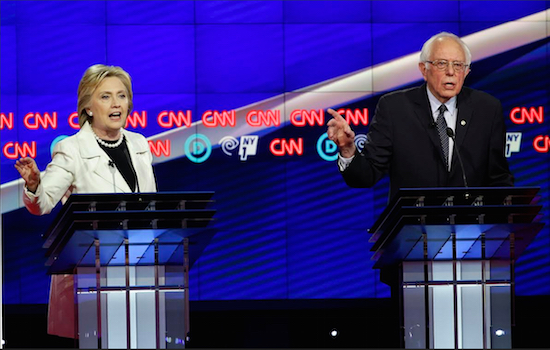Clinton, Sanders keep sniping after Brooklyn debate

As if their two-hour televised debate at the Brooklyn Navy Yard wasn’t enough time to attack each other, former Secretary of State Hillary Clinton and Vermont Sen. Bernie Sanders continued sniping at each other long the cameras were turned off at Thursday night’s CNN-NY1 debate.
Post-debate, the two fierce rivals vying for the Democratic Party nomination for president had their campaigns hit each other hard over a variety of issues, including her ties to Wall Street and his health care reform ideas. And in some cases, the campaigns did not even wait until the debate was over. While the debate was still going on, news organizations, including the Brooklyn Eagle, were getting emails from both sides.
The Sanders campaign charged that Clinton is too cozy with Wall Street because she has accepted campaign contributions from the financial sector.
